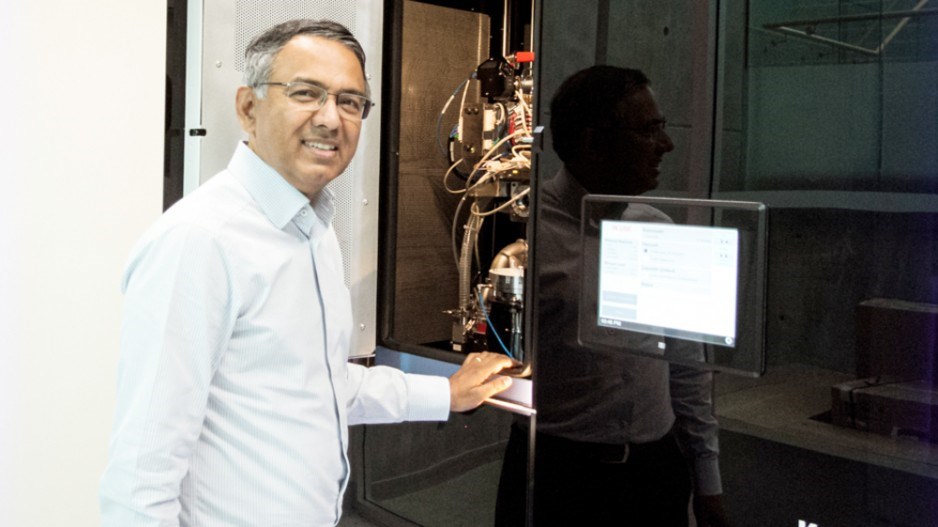The world’s first molecular-level analysis of the Omicron variant has been conducted here in B.C. and researchers are calling their findings “remarkable.”
Dr. Sriram Subramaniam, a professor in UBC's department of biochemistry and molecular biology, is part of a team who analyzed the coronavirus variant at a near-atomic level, thus revealing many of its aspects that are having real-world repercussions.
“The findings shed new light on why Omicron is highly transmissible and will help accelerate the development of more effective treatments,” stated the doctor on Dec. 22, via a statement from the university.
Omicron has 37 spike protein mutations — that's three to five times more mutations than any other variant researchers have seen.
Why is this important? The spike protein is the piece of the virus that attaches to human cells to infect them. The spike protein is what the mRNA vaccines emulate to trigger an immune response.
“Therefore, small mutations on the spike protein have potentially big implications for how the virus is transmitted, how our body fights it off, and the effectiveness of treatments,” noted Subramaniam, whose work is under peer review.
And despite all the mutations, Subramaniam called it “remarkable” that Omicron can bind to cells so efficiently. This is what Subramaniam believes is causing the virus to spread so easily.
And, “notably, Omicron was less evasive of the immunity created by vaccines, compared to immunity stemming from natural infection in unvaccinated COVID-19 patients,” said Subramaniam. “This suggests that vaccination remains our best defence against the Omicron variant.”
The UBC scientists also found the variant is better at evading monoclonal antibodies, which are used for treatment on previous variants and the original SARS-CoV-2 virus first detected in Wuhan, China.
“The good news is that knowing the molecular structure of the spike protein will allow us to develop more effective treatments against Omicron and related variants in the future. Understanding how the virus attaches to and infects human cells means we can develop treatments that disrupt that process and neutralize the virus,” explained Subramaniam.
On Dec. 21, provincial health officer Dr. Bonnie Henry said it’s not yet clear if Omicron is as severe as other waves and to what degree a third booster will offer immunity. She alluded to the likelihood of new variants of concern sprouting up around the world in the future — especially as much of the world has no access to vaccines.
“I think there is some optimism that this is a way that is changing things, as long as we can support immunization across the world. So that's the other part that we really need to think about; how we manage what we're doing and how we get through this next wave here in B.C. and then how do we ensure that we're supporting vaccine equity so that we have that level of immunity that protects us from the next Omicron,” B.C.'s top doctor said.
This reality, said Henry, is a reason to maintain her age-based schedule of boosters leading into January and February, as opposed to a more immediate mass booster program for anyone able and willing to get the shot now.
“We need to make sure that we are giving people the best options that we can and making sure that we are protecting them not just with this variant, but for the next variant and the next variant, so that balance is important,” said Henry.




